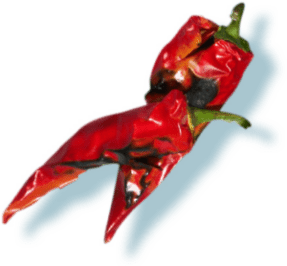Source: Franchise Times
Butterfly Equity principal Francesco D’Arcangelo has been involved in acquiring Qdoba twice, once from Jack in the Box and, more recently, from his former employer, Apollo Global Management. Now, Butterfly plans to double 750-unit Qdoba’s store count in a matter of years. That would keep the brand trailing behind Chipotle’s 3,500 locations—but Qdoba is perfectly content sitting at No. 2.
For Qdoba Mexican Eats CEO John Cywinski, a sporting event’s best pairing is a bag of tortilla chips and large order of Qdoba queso. “It’s addicting,” he said. “If you look at other players in the Mexican fast-casual space, I’m not sure that they all hold up to our standard.”
During this interview in Beverly Hills, though, there’s no queso to be seen. The San Diego-based company peculiarly doesn’t have a strong presence in California. (In fact, there are just two Qdobas in its home city, one of which is in an airport.) The sole Los Angeles store is on a university campus, but Qdoba is interested in signing franchisees in California and other untapped markets. “We have very few in California and there are other states where we just aren’t all that penetrated,” Cywinski said.
Cywinski joined the Qdoba team in January 2023 following Butterfly Equity’s acquisition of the company in August 2022. The transaction won the Franchise Times Deal of the Year. Cywinski previously worked at “clear turnaround” brands like KFC and Applebee’s. “What appealed to me is this is something very different. This is a growth story,” he said.
Apollo Global Management sold Qdoba to Butterfly after owning the brand since 2018, when it bought the fast-casual chain from Jack in the Box for $305 million. Butterfly merged Qdoba with holding company Modern Restaurant Concepts, which comprises much smaller brands Lemonade and Modern Market Eatery. Terms of this deal weren’t disclosed, but Cywinski noted Butterfly got a good price on Qdoba.
Qdoba is a customizable Mexican-inspired bowl concept similar to, but not competing with, Chipotle, Cywinski said. Guests can choose from rice bowls, burritos, nachos, quesadillas, tacos and more, with toppings like crispy tortilla strips, cotija cheese and a variety of sauces and salsas.
“We don’t have to steal any share” from Chipotle, Cywinski said. “We peacefully coexist. We have great respect for that brand. They pioneered this category.” With 750 restaurants and sitting happily in the No. 2 spot based on unit count, Qdoba doesn’t feel the need to be the McDonald’s of the Mexican category (or the Taco Bell, for that matter).
Adam Waglay and Dustin Beck co-founded Butterfly, a private equity firm that focuses on the food sector, “from seed to fork,” in 2016. The firm is a certified B Corporation as of June 2023 with a commitment to social and environmental awareness. It emphasizes giving back, with a foundation dedicated to improving access to healthy food and fighting food insecurity. Butterfly gives 10 percent of net profits to the foundation, which launched in tandem with the PE firm.

Qdoba’s parent company, Modern Restaurant Concepts, includes Modern Market Eatery, which started franchising in 2020. Rob McColgan founded Modern Market in 2008 and created the holding company in 2019 when it purchased Lemonade Restaurant Group. Qdoba units comprise about 95 percent of MRC’s portfolio.
Butterfly Principal Francesco D’Arcangelo had a major role in the Qdoba deal and had a prior relationship with the brand when he worked for Apollo Global Management from 2017 to 2019.
Coming out of the pandemic in mid-2022 when the intent to buy Qdoba was announced publicly, underwriting came as a challenge, he said. Everything was unpredictable, such as inflation rates and food and labor costs. “In retrospect, we took a very conservative view up front during our underwriting and have continued to be well ahead of plan and our expectations,” D’Arcangelo said.
D’Arcangelo and Cywinski are serious when talking business. When it’s time for a photo shoot, though, the goof factor comes out as Cywinski imitates a “Zoolander” face, like Ben Stiller in the film, and even flips his nonexistent long hair.
The two work well together, and that shows with their unified goal: “We want to accomplish something remarkable,” Cywinski said. They aren’t looking to just manage a brand, he said.
“It’s rare to find a brand that can be double. It’s rare to find a brand that can, for the first time, be introduced to America with national marketing. It’s rare to find a brand that for the first time can move into other parts of the globe.”
‘Under-optimized and under-invested’
Butterfly’s interest in Qdoba stems from its ability to scale and the opportunities within the Mexican fast-casual space, D’Arcangelo said. “In particular, we saw an incredibly scaled brand with a ton of upside from a unit count perspective,” he said. “You look at something like Chipotle that has 3,500 units and growing. Qdoba has a tremendous amount of white space and we can grow pretty rapidly with our franchise partners.”

Consumer desire for fast, affordable, better-for-you meals and the business model’s simplicity are driving growth and are part of the reason Butterfly found Qdoba attractive, he said. “We felt like the brand had been under-optimized and under-invested,” D’Arcangelo. One way to change that, he said, is amping up catering, “which has been a tremendous tailwind for the brand. I think we do that better than anyone else.”
While under Apollo’s ownership, the company took a step back from catering during the onset of the COVID-19 pandemic. Prior to that, though, the mix of catering to in-store revenue was attractive for Butterfly. D’Arcangelo said the firm knew the catering channel would bounce back as time went on.
When Butterfly bought the brand, average unit volume was around $1.3 million and has since increased to nearly $1.6 million, D’Arcangelo said. “That’s a significant outperformance from a revenue trajectory,” he said. “John has a few more tricks up his sleeve to get us closer to $2 million AUVs, which is the long-term target for the brand.”
Those tricks, Cywinski said, primarily involve new development and national advertising to get the name out there in markets unfamiliar with the concept. Qdoba has never marketed on a national level, but it plans to roll that out once it’s closer to 800 or 900 units, Cywinski said. “It’s important that we tell our story, who we are, what we stand for, in a very distinctive way,” he said.
And he has the experience to see these goals through. Cywinski’s six years with Applebee’s resulted in systemwide sales topping $4.6 billion at the 1,600-unit brand, despite closing hundreds of stores and battling a pandemic during his tenure. The casual dining franchise returned to a 100 percent franchised status after selling its 69 corporate stores in 2022. The franchise veteran worked at Chili’s parent Brinker International, and at KFC before that.

Since Butterfly’s acquisition, Qdoba refranchised 120 restaurants, bringing the percentage of franchised locations to about 80 percent. “We had always been told that refranchising is difficult in many ways. You’re selling company-owned assets to franchise partners and it can be a drag on financial performance if not done correctly,” D’Arcangelo said.
Butterfly looked at case studies of brands that have refranchised units successfully, “which is not a lot when you really look at the history,” D’Arcangelo said. “We took a measure twice, cut once approach.”
He continued, “Having a more asset-light approach to the restaurant industry as a brand owner creates a much more predictable business model.”
In the next five years, as Qdoba increases its store count, Cywinski wants to see the brand 90 or even 95 percent franchised. The company has plans to eventually refranchise more of its 160 corporate stores, but for now, new unit growth is coming from franchisees developing new restaurants.
Restaurant profitability has expanded by nearly 300 basis points in the past year, D’Arcangelo said, which is primarily driven by same-store sales growth. “We’ve been very, very pleased with how the investment’s gone to date,” he said.
Under Butterfly, Qdoba completed a $305 million whole business securitization last year, a change from its traditional financing. The company wanted to lessen its interest expenses, as the previous loan taken on by Apollo had an interest rate above 12 percent.
Transaction proceeds will be used to invest in corporate initiatives, like remodeling 80 corporate restaurants. “Some of them haven’t been touched for many years, driven by COVID,” D’Arcangelo said of the corporate-owned stores. “We saw some pretty low-hanging fruit in terms of getting the brand back to our standards and reinvesting in the core.”
The path to 1,500
Qdoba got its start 1995 as Zuma Fresh Mexican Grill in Denver. In 1997, the name changed to Z-Teca Mexican Grill before settling on Qdoba in 1999. Jack in the Box bought the company in 2003 for $45 million cash. The fast-food giant merged Qdoba’s headquarters into Jack in the Box in 2014. When Apollo purchased Qdoba in 2018, the brand had about 700 restaurants.

Qdoba topped $1 billion in sales in 2022, up nearly 9 percent year over year. Average net sales among 333 franchised units in 2023, according to Qdoba’s Item 19, were $1.5 million. The company added 14 new stores last year.
The Mexican fast-casual category is led by non-franchised Chipotle, which has more than 3,400 stores open in multiple countries. Among the key franchise players, both fast casual and quick service, are Moe’s Southwest Grill, Del Taco and El Pollo Loco, each with 500-plus units.
“We lean into flavor. We believe our flavor profile is distinct,” Cywinski said. “We have more ingredients, more toppings. We hear that a lot from our guests.”
Now under Butterfly’s ownership, Qdoba intends to open 60 stores by the end of this year.
“When you look at a map, the white space is enormous. So when we talk about doubling the size of this brand within the next several years, that’s realistic and achievable,” Cywinski said. “Anything’s possible with this brand.”
The initial investment required to open a Qdoba restaurant ranges from $489,200 to $1.3 million.
Many of the company’s 80 franchisees have active development agreements. The chain has interest from new, large and well-established franchise groups as well, Cywinski said, who “want in because Mexican fast-casual is so attractive,” with fewer national competitors.
“Within Mexican fast-casual, there are only two,” he said. “We love being a strong No. 2 in the most attractive category in the restaurant industry from an explosive growth perspective.”


